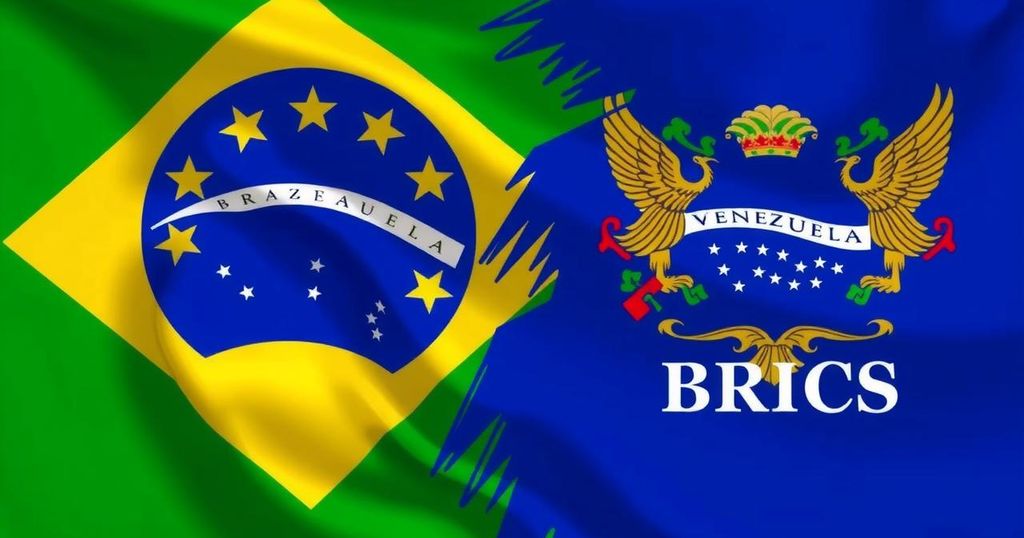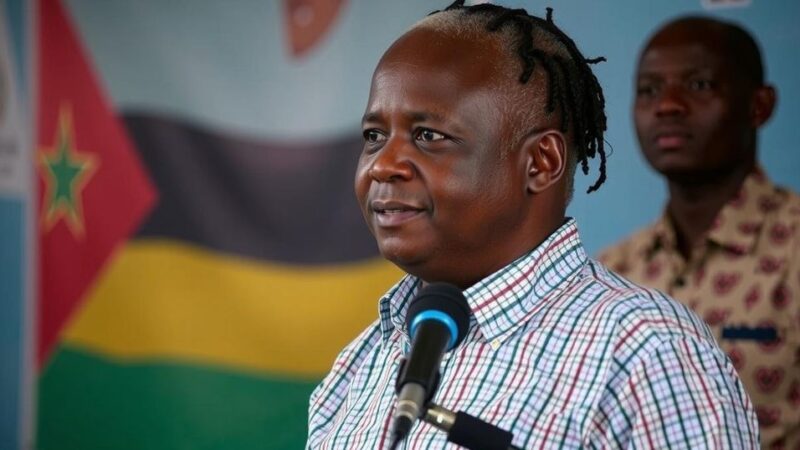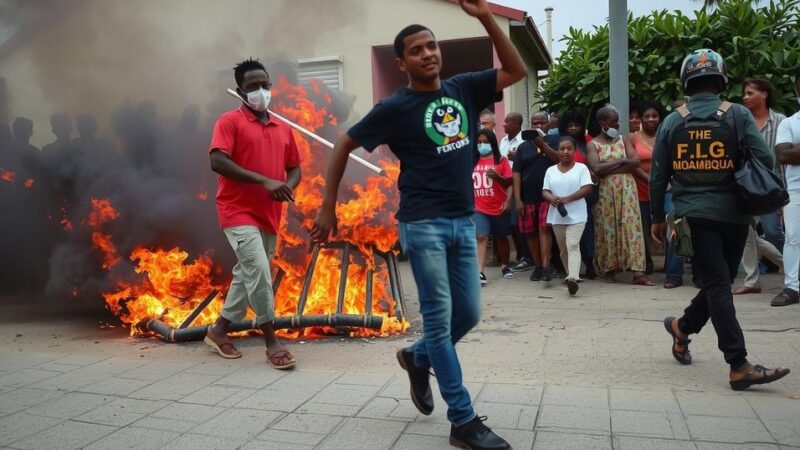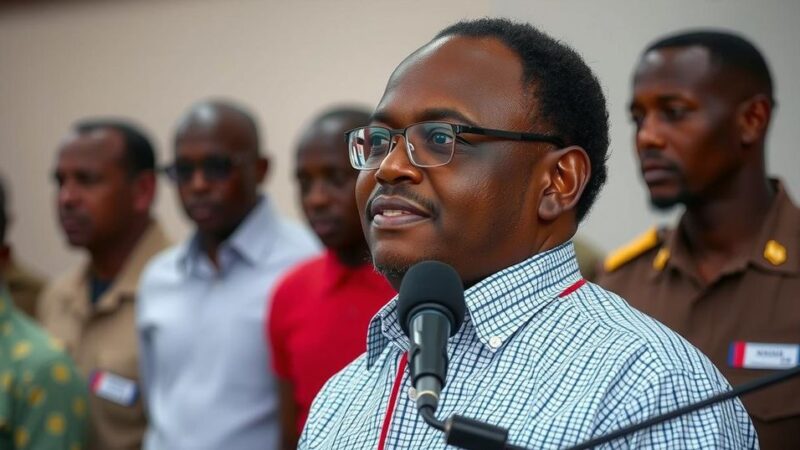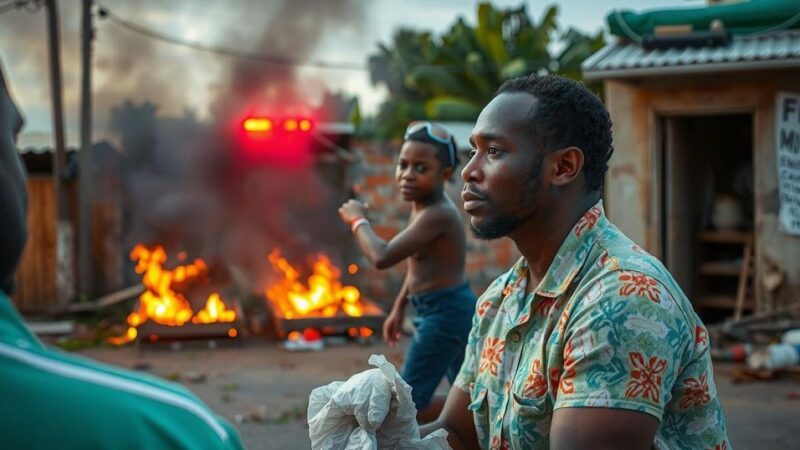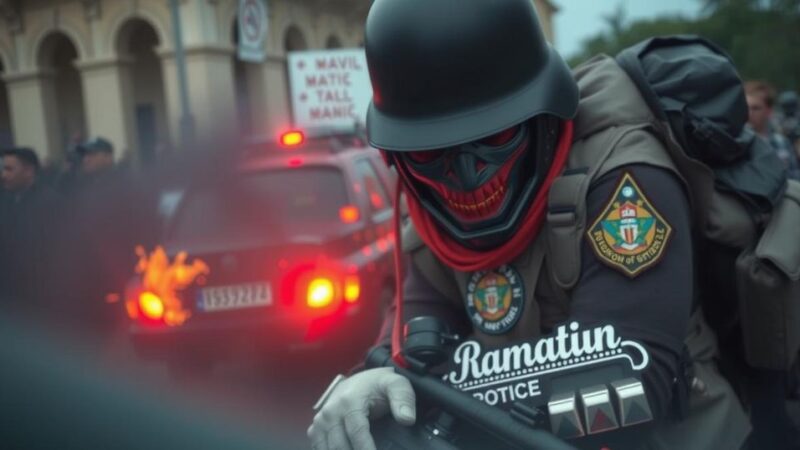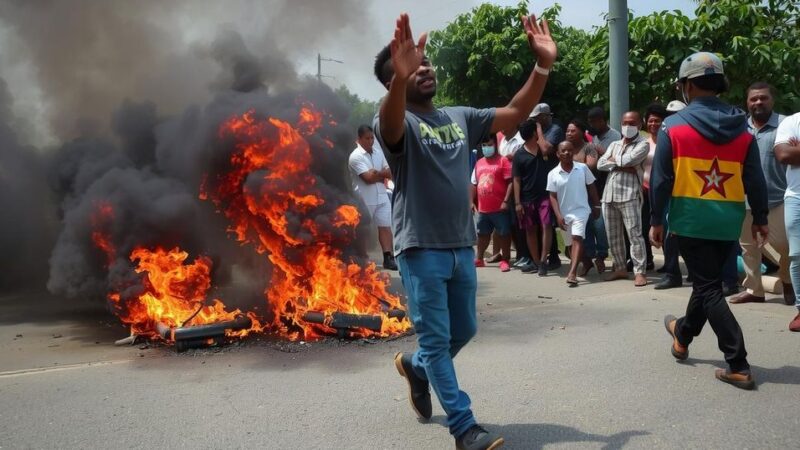Venezuela is outraged over Brazil’s veto of its application to join the Brics group, labeling it as “immoral aggression” amid deteriorating diplomatic relations following Venezuela’s disputed presidential election. President Maduro claimed victory, although many believe the opposition candidate won. With internal divisions within Brics and geopolitical challenges affecting cooperation, the incident highlights the complexities of Brazil-Venezuela relations.
Venezuela has expressed its discontent toward Brazil following its decision to veto Venezuela’s admission to the Brics group of emerging economies. The Venezuelan foreign ministry characterized this action during the recent summit in Russia as an “immoral aggression”. Relations between Venezuela and Brazil’s left-wing administrations have deteriorated after the contested presidential election in Venezuela, wherein President Nicolás Maduro asserted his re-election despite widespread belief that opposition candidate Edmundo González achieved a substantial victory. Initially, Brazilian President Luiz Inácio Lula da Silva extended support to Maduro but subsequently hesitated to accept the election results without further breakdown of the voting process. Many foreign governments have indicated their belief that the opposition won the election, yet none have formally recognized González as president. According to a statement from the Venezuelan foreign ministry, “The Brazilian foreign ministry has decided to maintain the veto that [former Brazilian president] Jair Bolsonaro has applied against Venezuela for years, reproducing the hatred, exclusion, and intolerance promoted from the centers of power in the West.” Moreover, the ministry expressed that “the Venezuelan people feel indignation and shame at this inexplicable and immoral aggression.” Venezuela had actively sought membership in Brics, with President Maduro making an unexpected appearance at the Kazan summit, proclaiming that Venezuela was “part of the Brics family”. Russian President Vladimir Putin, who chaired the summit, supported Venezuela’s desire to join, citing that it necessitated consensus among existing members, noting Brazil’s stance on the matter. Putin stated, “We know Brazil’s position. We do not agree; Venezuela is fighting for its survival,” and mentioned his prior discussions with Lula regarding this issue. While Lula was originally scheduled to attend the summit, he was unable to do so due to an injury sustained shortly before the event. Historically, the Brics grouping initially included only Brazil, Russia, India, China, and South Africa. However, in the previous year, additional nations, including Egypt, Ethiopia, Iran, and the United Arab Emirates, were welcomed into the fold. President Lula has been a strong proponent of Brics as a vehicle for reforming global governance and amplifying the voices of developing nations, criticizing international institutions for their perceived stagnation while endorsing the group’s expansion as beneficial for representing diverse perspectives. Nonetheless, some analysts contend that internal conflicts within Brics, notably the ongoing war in Ukraine involving Russia and rising tensions between China and India, might undermine the group’s effectiveness. The Kazan summit was perceived as a chance for Putin to illustrate that attempts to isolate Russia due to its military actions in Ukraine were failing. However, his efforts to solidify Brics as a counterbalance to Western dominance have also revealed rifts within the coalition, further straining the already low relations between Brazil and Venezuela since Lula’s return to presidency two years prior.
The recent tensions between Venezuela and Brazil arise from Brazil’s rejection of Venezuela’s entry into the Brics economic coalition during the summit held in Russia. Venezuela’s foreign ministry denounced Brazil’s actions as a significant diplomatic affront, particularly in light of the ongoing political strife within Venezuela following the contentious presidential election results. President Maduro’s claims of victory have been met with widespread skepticism, further exacerbating diplomatic relations with Brazil, which had previously been a supporter of Maduro’s government. The Brics group aims to enhance collaboration among emerging economies while simultaneously addressing disparities in global governance, a cause that President Lula actively champions. However, the internal disarray within Brics, compounded by geopolitical conflicts, challenges the group’s unity and efficacy. This situation illustrates the complexities faced by Brazil and Venezuela as they navigate their bilateral relations amidst competing regional interests and global issues.
In conclusion, the recent diplomatic fallout between Venezuela and Brazil highlights the fragility of their relationship, particularly in the wake of Brazil’s veto of Venezuela’s entry into Brics. The Venezuelan government’s strong reaction underscores heightened tensions stemming from perceptions of political aggression. Moreover, the dynamics within the Brics coalition, characterized by conflicting priorities and geopolitical pressures, further complicate the prospect of reconciliation between the two nations. This episode reflects broader themes of power, representation, and the struggle for influence in the shifting landscape of international relations.
Original Source: www.bbc.com

